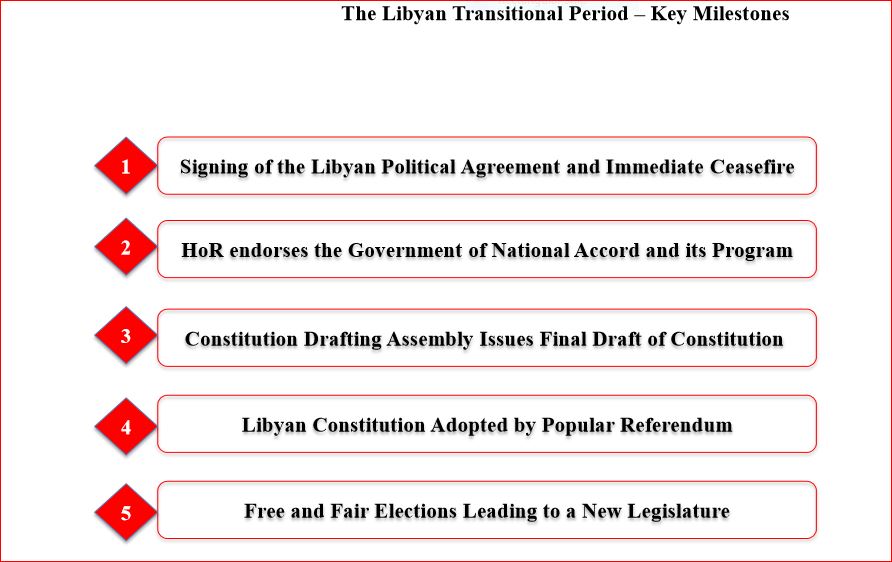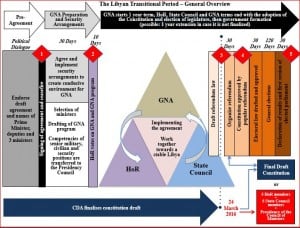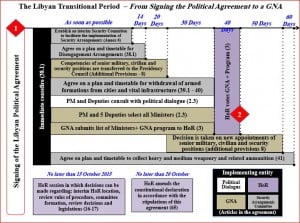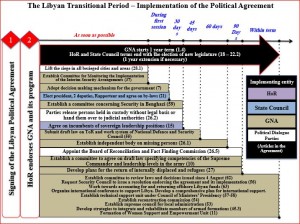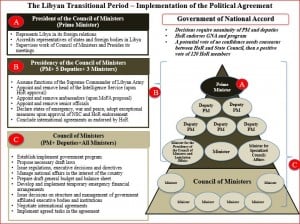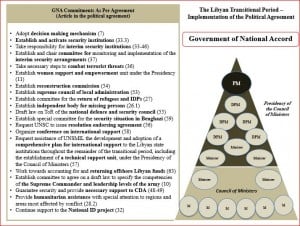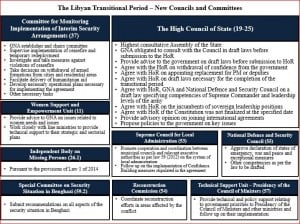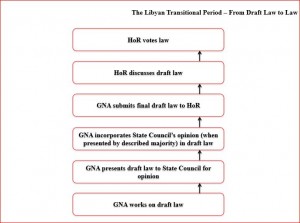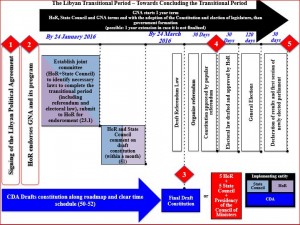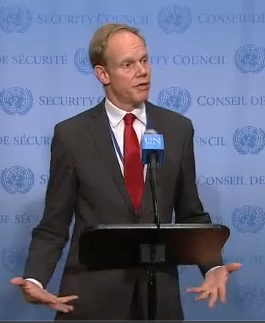By Sami Zaptia.
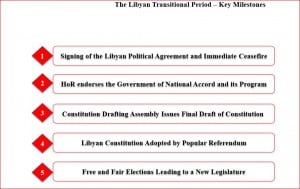
London, 22 December 2015:
With the signing of the Libyan Political Agreement in Skhirat, Morocco on 17 December by a . . .[restrict]majority of members from the previously antagonistic House of Representatives (HoR) based in Tobruk and the General National Congress (GNC) based in Tripoli, Libya is set to embark on a new phase of its political roadmap.
It will be recalled, and it would be so easy to forget in view of all the politics that has happened in Libya since the overthrow of the Qaddafi regime in 2011, that Libya is still following the political roadmap set in the August 2011 Transitional Constitutional Declaration (TCD).
However, the timeline set by the TCD proved in reality too tight and the GNC failed to create the necessary environment for the Constitutional Drafting Authority (CDA) to deliver a draft constitution for the GNC or the Libyan public to vote on.
As the political reality on the ground bypassed the GNC, the GNC was forced to vote in the ‘‘February Committee’’ which in turn suggested amendments to the TCD leading to the HoR elections of June 2014.
The signing of the UN-brokered Libyan Political Agreement (LPA) in Skhirat calls for an immediate ceasefire in all conflicts across Libya. It requires that the HoR endorses the GNA and its political programme born out of the LPA.
In parallel, the CDA is expected to present a draft of the constitution for approval by the GNA and thereafter a public referendum. Once a constitution is adopted, it will set out a timeline and processes for general elections for a fully empowered legislature and its resultant government.
As of 17 December, the GNA has a one-year term which will end when a constitution is voted for by the Libyan public in a referendum. If a constitution is not agreed within a year, the term of the GNA is extendable by another year.
The GNA has 30 days (January 16th 2016) to agree and implement security arrangements in order to create a conducive environment for it to operate in the capital Tripoli.
Talks with various militias have already commenced as confirmed by Martin Kobler and Ahmed Maetig in a BBC interview who said about 50 different militias are involved in discussions.
During these 30 days the GNAmust agree on the selection of the rest of its ministers and it must complete the drafting of its political programme for its period in office.
All the competencies of senior military, civilian and security positions are transferred to the Presidency Council. Libya Herald understands this to mean that Presidency Council has complete and total authority and sovereignty to appoint or dismiss the Central Bank f Libya Governor or the Libyan Investment Authority chairman or the Attorney General or the Chief of Staff of the Libyan National Army etc.
Within 30 days of the signing of the Skhirat agreement, a plan and timetable must be agreed for the withdrawal of armed formations (‘‘militias’’) from cities and vital infrastructure.
50 days from the signing a decision has to be taken on new appointments of all senior military, civilian and security positions.
And 60 days from the signing a plan and timetable has to be agreed on the collection of heavy and medium weapons and ammunitions.
(the above dates in blue were inserted at an earlier date by an overly optimistic UN)
The GNA must establish a committee to monitor the implementation of the interim security arrangements. After 30 days from the signing of the agreement, the GNA must also establish a committee regarding the security in Benghazi. All prisoners held without legal basis must be released or handed to judicial authorities.
GNA decisions require unanimity of the Prime Minister and his deputies. A potential vote of no-confidence needs a consensus between the HoR and State Council followed by a positive vote of 120 HoR members.
Amongst the commitments and responsibilities of the GNA are: Establish and activate security institutions; combat terrorism; women support and empowerment; return of refugees and IDP; request UNSMIL support; return offshore Libyan funds; security for the CDA
Committees include: The Committee for Monitoring Implementation of Interim Security is to monitor the ceasefire and investigate and take measures against ceasefire violations. It is also to take decisions regarding the withdrawal armed formations from cities and residential areas.
A Women Support and Empowerment Unit is to provide advice to the GNA on issues related to women.
In drafting a law, the GNA must present it to the State Council for its opinion before submitting it to the HoR for a vote.
The schematics and dates above are all provided by the UN.
[/restrict]
